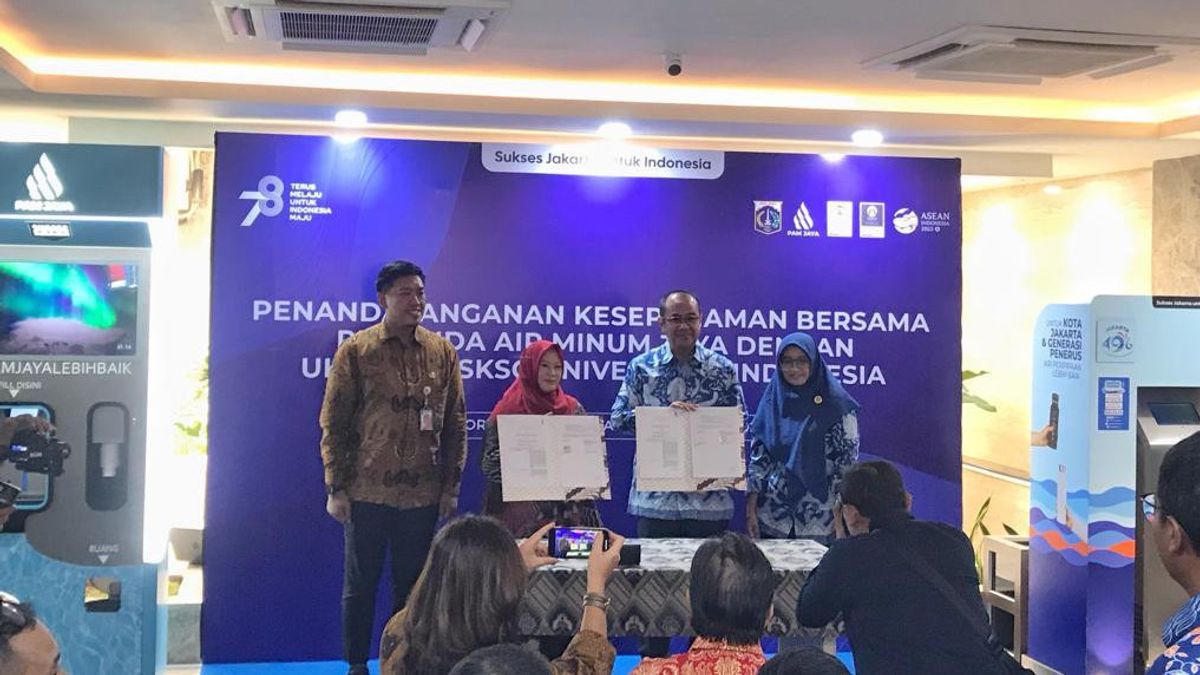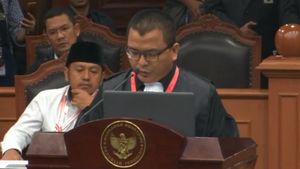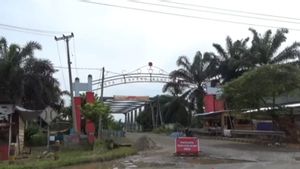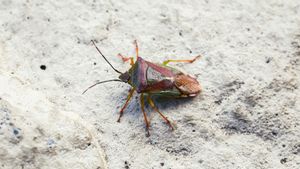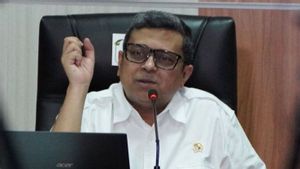JAKARTA - Perumda Air Drinking (PAM) Jaya collaborates with the STratejik and Global Study School (SKSG) of the University of Indonesia in the implementation of studies, research, and measurements of the resilience of piped water services in the capital city.
President Director of PAM Jaya Arief Nasrudin said, these UI academics will conduct assessments such as studies and assessments of clean water services to customers who have been running so far.
"This synergy with the UKK CSGS SKSG University of Indonesia will be carried out through Focus Group Discussion activities, both online and offline, and research," said Arief at the PAM Jaya office, Thursday, July 20.
Arief said that his party would also ask SKGS UI to conduct a study on the target of fulfilling clean water service coverage which is targeted to reach 100 percent by 2030. Until now, PAM Jaya's service coverage in Jakarta is still 65 percent or to 908 thousand customers. The production capacity of piped water produced is still as much as 20,725 liters per second.
"In various kinds of socialization of accelerating pipeline installation until 2030, the academic sector is our target for us to touch to help us disseminate information to the community. One of them is environmental impacts, social impacts, it requires perspective from the academic sector," said Arief.
VOIR éGALEMENT:
Head of the UKK CSGS SKSG University of Indonesia, Shobichatul Aminah, explained that his party would issue recommendations to PAM Jaya starting from administrative recommendations, technical recommendations, service quadrant positions, and policy measuring instruments.
This research process was carried out by the National Resilience Research Center (PRKN) team, which is one of the Business Units of the UKK CSGS SKSG University of Indonesia. "The research method that will be used includes verification, confirmation, and validation, thus producing an instrumental picture in forming a spider web model for the readiness of the PAM service system and a model of disruption of PAM services," he explained.
The English, Chinese, Japanese, Arabic, and French versions are automatically generated by the AI. So there may still be inaccuracies in translating, please always see Indonesian as our main language. (system supported by DigitalSiber.id)
